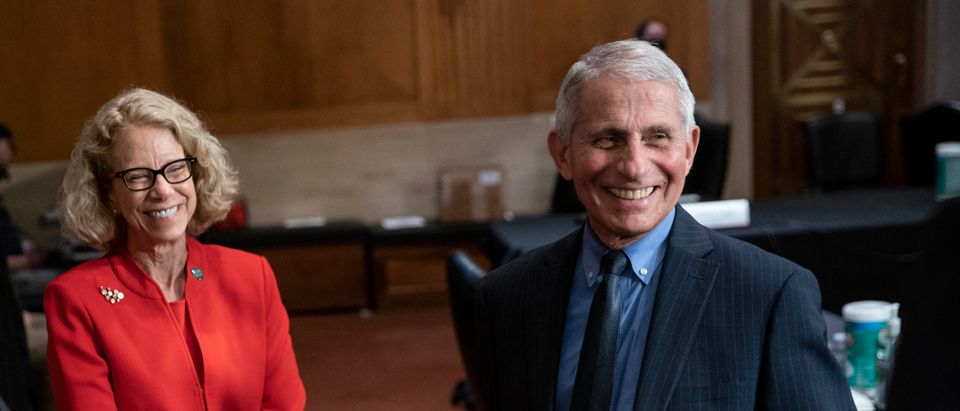CNN praised Dr. Anthony Fauci after thousands of emails were published revealing new information about how the director of the National Institute of Allergy and Infectious Diseases (NIAID) handled the beginning of the pandemic.
The outlet said that the emails offer a “rare glimpse into Fauci’s frantic schedule and polite, to-the-point demeanor.” It further said that he was “a rare source of frank honesty within the Trump administration’s COVID-19 task force.” CNN highlighted emails where Fauci said he was “tired” and not getting much sleep.
They also pointed out that “scores” of thankful messages were coming in from fans and noted that Fauci’s correspondence “always seemed pleasant.”
Fauci’s relationship with former President Donald Trump was also highlighted, and CNN described Fauci as “firm” against the “overly optimistic” former president. (RELATED: Biden Claimed Trump ‘Muzzled’ Fauci — But Emails Reveal Fauci Said Otherwise)
Thousands of emails from and to Dr. Fauci reveal the weight that came with his role as a rare source of frank honesty within the Trump administration’s Covid-19 task force https://t.co/vCKrWJFOc0
— CNN (@CNN) June 2, 2021
Emails published by The Washington Post and Buzzfeed showed that Dr. Peter Daszak, the leader of a nonprofit group with close ties to the Wuhan Institute of Virology, thanked Fauci in April 2020 for shutting down the theory that coronavirus could have leaked from the Wuhan lab.
Despite evidence indicating its possibility, media outlets covered it as a “conspiracy theory” that had been “debunked” it broke into the mainstream.
Fauci was also told about possible evidence supporting the lab leak theory in January of 2020 when an infectious disease expert said a small part of the virus “potentially” looked engineered. Still, Fauci continued to publicly shut down any possibility that the virus came from a lab.
Despite testifying in Congress that he was unaware of NIAID funding gain-of-function research at the Wuhan lab, an email showed him discussing the research indicating that he had at least some idea about the funding.
Before the pandemic, NIAID had failed to flag a grant from the National Institute of Health that involved gain-of-function research and a transfer of $600,000 to the Wuhan Institute of Virology.












